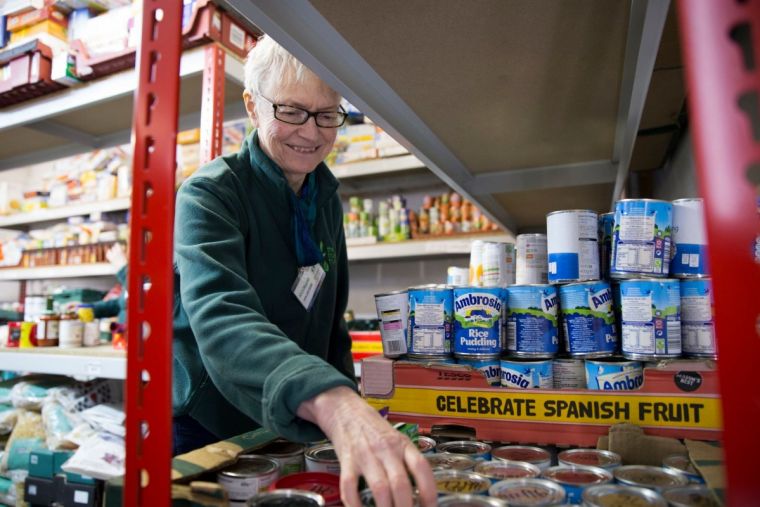Churches warned to prepare for 'tidal wave of poverty'

As church leaders are studying government guidelines, working out how safely to open their churches for public worship, they are being urged to be ready to respond to the lasting impact of the pandemic on the country's poorest people.
The effect on urban, suburban and rural communities is likely to be severe with jobs being lost and livelihoods threatened. The poorest in society may find themselves hardest hit.
Churches are being encouraged to respond to the devastating impact of the pandemic and to build on the numerous social projects already in place.
The Trussell Trust that supports around 1200 UK foodbanks is warning of a 'tidal wave of poverty' poised to engulf the country.
Chief executive Emma Revie has called on church leaders to talk to their congregations about justice and compassion and to work to address the root causes of poverty.
Speaking at a Bible Society webinar she encouraged church leaders "increasingly to talk to their congregations about God's concern for justice and compassion to characterize the structures of our society: the way our benefit system works, the way our economy functions, people's employment conditions and wage levels."
Revie said that the Trussell Trust was "very clear that food banks are not a solution to poverty" and the charity wanted "to see people experiencing fullness of life and not being trapped by poverty."
She praised the vital role played by churches in running foodbanks and asked congregations that "when we pray for our foodbanks, that we would also allow ourselves room to lament the injustices that make them necessary in the first place and seek wisdom about how we might be part of bringing about change."
"Because if we don't concern ourselves with these things, the tidal wave of poverty is going to be too high and too powerful for us to respond to and we will see many more people being swept into destitution in the UK," she said.
At the webinar, entitled 'Mission during lockdown and beyond,' the Bible Society published research showing that church leaders are expecting increased demand for food banks, poverty relief, mental health work, bereavement support, relationship counselling, as well as courses such as Alpha that introduce people to the Christian faith.
The insights resonate with responses to the impact of the pandemic from other church leaders. Bishop of Tonbridge Simon Burton-Jones warned a Church of England webinar in May that the pandemic would cause growth in the 'precariat', the number of people on zero-hours contracts or juggling several jobs to survive.
The bishop forecast an increase in tension between the generations, with the future particularly bleak for many young people who have lost their jobs, and those living in insecure rented accommodation.
In 'Eleven things to be aware of as we emerge from a pandemic', Bishop Burton-Jones also highlighted how professions that deal in words – such as politicians and the media – are losing trust, but those that care for the body, such as the NHS, have increased in standing. Christians must be seen to care, and authentic evangelism needs a demonstration of love, he reasoned.
Other insights included a resurgence in bottom-up creativity, including volunteering at local level, the importance of mental health finally being recognized and the risk of extremists exploiting the 'decay of public truth' in our society.
The social role played by churches during the pandemic was praised by Prime Minister Boris Johnson and Opposition Leader Sir Keir Starmer at this week's National Parliamentary Prayer Breakfast.
But a Theos Think Tank report on 'Religious London' published last week argues that, although politicians and public officials turn to religious communities in crises, they tend to overlook faith communities' vital ongoing work.
The report argued that London's leaders and policy makers should take more account of religious communities and their significant role in providing social welfare across the capital.
Speakers at the launch included Lewisham East MP Janet Daby, shadow minister for faith, who called on religious groups to be more involved in politics, and for politicians to understand better the role played by faith communities in the capital's life.











